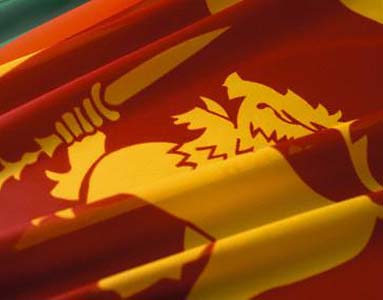Lanka Government announces temporary cease-fire
 Colombo/Chennai, Apr. 27 : The Sri Lanka Government has announced a temporary cease-fire to allow for the evacuation of nearly 20,000 Lankan Tamil civilians from a no-fire zone deep in rebel LTTE territory.
Colombo/Chennai, Apr. 27 : The Sri Lanka Government has announced a temporary cease-fire to allow for the evacuation of nearly 20,000 Lankan Tamil civilians from a no-fire zone deep in rebel LTTE territory.
Sources in Colombo said that there would be no use of aerial weaponry or artillery while the temporary cease-fire is on, and added that this was being done to enable humanitarian organizations to pursue their rescue efforts and evacuate refugees.
In a statement Monday, the government said it concluded that combat operations had reached their conclusion and its troops would no longer use heavy machine guns, air strikes or artillery in the battle against the Tamil Tiger rebels.
The statement came amid heavy international pressure for a cease-fire to protect the tens of thousands of civilians trapped in the war zone. The government rejected a rebel truce appeal on Sunday as a desperate bid to stop the offensive.
The announcement of the temporary cease-fire came a day after the Liberation Tigers of Tamil Eelam (LTTE) announced a unilateral ceasefire, saying that that the humanitarian crisis in Sri Lanka''s war zone can only be overcome by a truce.
The Sri Lanka Government then quickly rejected the offer and asked the rebels to surrender.
"All of LTTE''s offensive military operations will cease with immediate effect. As the first step we have now announced this unilateral ceasefire and call upon the international community to pressure the Sri Lankan Government to reciprocate it," the LTTE said in a statement.
Reacting to the Tigers truce offer, Defence Secretary Gothabaya Rajapaksa said then there was no question of ceasefire with the LTTE.
Foreign Secretary Palitha Kohona said it is an "incredibly unbelievable joke". "Who will take them seriously when they are down on their knees and then announce a ceasefire," he said.
The LTTE truce offer came on a day when the Sri Lankan forces captured the strategic Vlayarmadam area and encircled remaining six sq km strip of land that is the possible hideout of its chief Velupillai Prabhakaran and his top aides.
Union Home Minister P. Chidamabaram conveyed the news of a reported cessation of hostilities in Sri Lanka to Tamil Nadu Chief Minister M. Karunanidhi, who immediately called off his indefinite hunger strike.
"I have the government''s assurance over the Sri Lankan issue," Karunanidhi said on ending his fast.
He was on an indefinite fast under the memorial of late C N Annadurai early Monday morning. His son M K Azhagiri was also observing a fast.
Earlier in the day, Prime Minister Dr. Manmohan Singh and Congress Party President Sonia Gandhi called Karunanidhi.
Dr. Singh assured Karunanidhi that his government is in touch with Colombo.
Sonia Gandhi also called the Dravida Munnetra Kazhagam supremo from Murshidabad in West Bengal and expressed her concern about the plight of Tamil civilians in Sri Lanka.
The telephone calls to the ailing 84-year-old Karunanidhi came as DMK supporters launched road blockages in Chennai, Madurai, Trichy and Erode, besides other Tamil Nadu cities.
Public transport was disrupted and some DMK cadres hurled stones at buses.
Police deployment was in place to prevent a breakdown in law and order.
Karunanidhi had clarified that the priority was not to ban the Liberation Tigers of Tamil Eelam (LTTE), but to save the lives of thousands of Sri Lankan Tamils.
In a telegram to Dr. Singh, Sonia Gandhi, External Affairs Minister Pranab Mukherjee, Karunanidhi had urged the Indian Government to issue a warning to Colombo to halt the war in Lanka immediately.
He had also asked the UN and the international community to intervene in the matter.
Last week, National Security Adviser M. K Narayanan and Foreign Secretary Shivshankar Menon visited Sri Lanka and urged Sri Lankan President Mahinda Rajapaksa and his government to work towards declaring a truce in the closing chapter of a 25-year war in which nearly 6,500 civilians have lost their lives since February 2009.
The meeting between Rajapaksa and the Indian envoys took place even as the international community continues to demand that Sri Lanka stop its offensive and the LTTE surrender to avert rising civilian casualties.
India''s move is seen as a swift reversal by its Congress party-led ruling coalition, which backs efforts to wipe out a group India lists as a terrorist organisation, but faces election pressure in Tamil Nadu to protect Tamil civilians. (ANI)